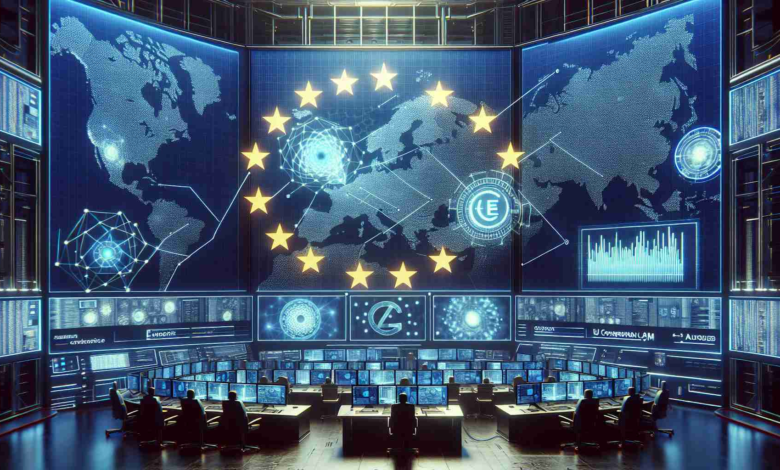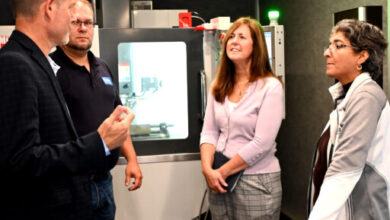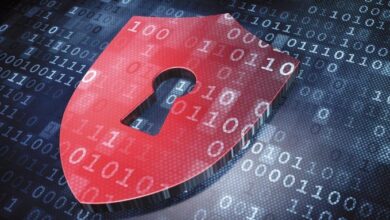European Union’s Proactive Shift to Quantum-Resistant Cybersecurity

The European Commission has taken a bold leap forward in cybersecurity by urging an upgrade to post-quantum cryptography (PQC), intending to counteract the potential risks posed by quantum computing. The move is crucial in preserving the confidentiality of sensitive data within the EU’s digital single market and maintaining its operational integrity.
Summary: This insightful analysis discusses the European Commission’s initiative to transition to post-quantum cryptography to combat the security challenges of quantum computing, emphasizing on the need for industry growth, international collaboration, and overcoming adoption challenges.
The paradigm shift to PQC signifies an invaluable strategic move to maintain the EU’s economic stability and privacy. The Commission suggests a solution integrating software-based approaches to work in harmony with current infrastructures, which should result in a smooth and budget-friendly conversion process.
As quantum threats grow clearer, the cybersecurity industry is experiencing a surge in research and development, with a notable forecast for market expansion. However, numerous obstacles stand in the way, including the standardization of PQC algorithms and the issue of data currently being collected, only to be decrypted by quantum technology in the future.
In this complex landscape, the EU’s strategy aligns with global efforts to develop reliable PQC standards, demonstrating a collective and coordinated approach towards cyber defense. The European Commission collaborates with organizations such as NIST and ENISA to fortify this transition.
The European Commission’s foresight in adopting PQC showcases a dedication to ensuring a resilient digital economy, ready to face the future’s cyber threats and emphasizing the EU’s influential contribution to global digital security.
Implications of Post-Quantum Cryptography Adoption in the Cybersecurity Industry
The European Commission’s advocacy for an update to post-quantum cryptography is an essential strategic endeavor aimed at bolstering the security of data transmitted across the European Union’s digital landscape. As quantum computing advances, it threatens to undermine current encryption standards, including RSA and ECC, potentially exposing sensitive information to new risks. The push for post-quantum cryptography is, therefore, not only a matter of enhancing data privacy but also of safeguarding the EU’s digital economy and its competitive edge.
Growth and Market Projections of Post-Quantum Cryptography
The cybersecurity industry is on the cusp of transformative growth, spurred by the looming threat of quantum computers. The global market for post-quantum cryptography is projected to expand significantly as governments and corporations alike acknowledge the necessity for quantum-resistant algorithms. Investment in R&D for PQC is skyrocketing, with players in the sectors of finance, defense, health, telecommunications, and government seeking solutions to protect their data against future quantum attacks.
Challenges and Considerations in PQC Implementation
Despite optimistic market forecasts, the industry faces multiple challenges in the widespread adoption of PQC. One major concern is the standardization of PQC algorithms, an endeavor that must balance the need for robustness against quantum attacks with the practical considerations of performance and integration with existing systems. Furthermore, there is the “harvest now, decrypt later” dilemma—where adversaries could be stockpiling encrypted data today, waiting for quantum computers to become capable enough to decode it.
Enhancing global collaboration is a pivotal theme in addressing these issues. The European Commission’s initiative coincides with international efforts to pre-empt the quantum threat. For instance, organisations like the National Institute of Standards and Technology (NIST) in the United States and the European Union Agency for Cybersecurity (ENISA) are vital partners in the race to establish viable PQC standards.
Outlook of PQC in Global Digital Security
The proactive stance of the European Commission in transitioning to post-quantum cryptography not only secures the EU’s sovereign interests but also contributes to the collective defense of global cybersecurity. This forward-thinking policy underscores the implications of quantum computing on national and international security and commerce. The advent of PQC is poised to play a critical role in future-proofing our digital infrastructures and maintaining public trust in digital services.
For further exploration of global cybersecurity efforts and the digital economy, one can visit sites like the European Commission or the National Institute of Standards and Technology for additional insights and resources.
Conclusively, as the cybersecurity landscape evolves, the European Union’s resolution to stay ahead of the curve by emphasizing post-quantum cryptography underscores the significant and growing influence of the EU in shaping the direction of global digital security standards.

Igor Nowacki is a fictional author known for his imaginative insights into futuristic technology and speculative science. His writings often explore the boundaries of reality, blending fact with fantasy to envision groundbreaking inventions. Nowacki’s work is celebrated for its creativity and ability to inspire readers to think beyond the limits of current technology, imagining a world where the impossible becomes possible. His articles are a blend of science fiction and visionary tech predictions.



